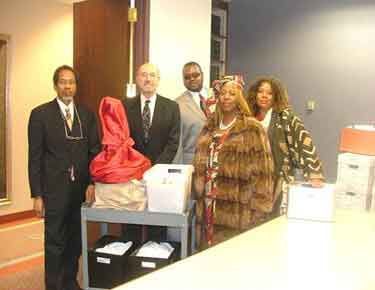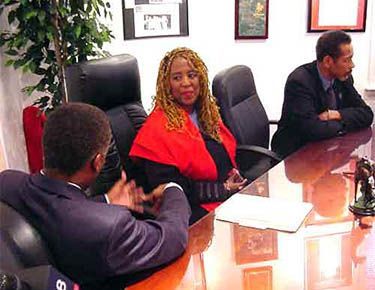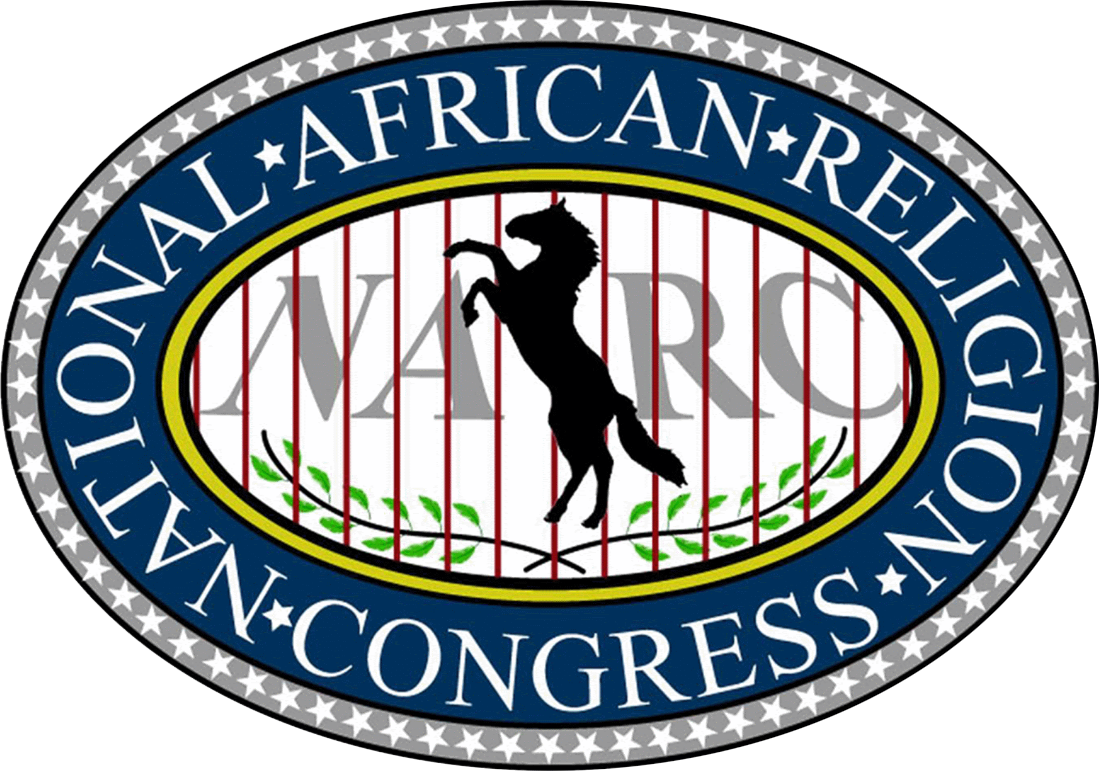Bridging the Gap Program
Worldwide Support
Nonprofit Service
Priest and Priestess Certifications
What Is Bridging the Gap?
At the National African Religion Congress, we know that preserving African faiths is important and difficult. With so many doctrines and practitioners around the world, finding a common source of information and support has been difficult. Since 1999, the National African Religion Congress has been bridging that gap.
Our program, Bridging the Gap, is designed for just this reason. We are here to make sure there is a connection point between these disparate faiths to validate their existence and practice. This helps those who follow the religion and outside authorities who lack cultural context.
The religions of the African Diaspora (Voodoo, Santeria, Candomblé, and so on) and the religions of the African continent (Ifa and Akan) are all based on oral tradition. Within this oral tradition, knowledge is passed on by word of mouth from one generation to the next. This means that priests and priestesses are initiated, trained, and ordained without any written records.
This lack of documentation allows priests and priestesses to make claims about their backgrounds and capabilities that cannot be confirmed or validated. They do readings and perform rituals, taking peoples’ lives into their own hands and, on occasion, doing actual harm.
Before NARC came into existence, those who consulted these priests and priestesses had no way of knowing who was trained and ordained and who was not. A primary motivating factor in NARC’s creation was the need for such confirmation and validation.
The impact has been worldwide. In Nigeria, where NARC has certified hundreds of Babalawos, priests, and priestesses, laws have been passed that make it illegal for a person to pose as a priest or priestess. Though these laws have been in existence for some time, the Nigerian police did not begin to enforce them until NARC began to certify priests and priestesses.
In the United States, all religious organizations have a means for establishing the validity of priests, ministers, or other church officials. Such officials usually carry some form of identification from the organization’s governing body. NARC’s position is that African-based religions must utilize a process by which such identification can be made. NARC refers to this process, which it has implemented in America and throughout the world, as certification.
Each applicant for NARC certification is subjected to a rigorous examination of the information provided on the NARC certification application. We confirm the certification information by contacting the person who initiated the priest or priestess and witnesses who observed the initiation.
Once it has been determined that the priest or priestess was truly initiated into a legitimate spiritual house (Ile, pale, or sanctuary), he or she may be certified. The priest or priestess must provide two color passport photographs, their Social Security number, and their date of birth.
NARC then prepares a color photo identification card that certifies that its holder is a bona fide priest or priestess of a legitimate African-based religion. In addition, NARC has produced an official decal that priests can post in the front window of their homes to indicate that the National African Religion Congress certifies them and their official role.
Awareness of NARC certification provides law enforcement officials with a way to quickly and confidently identify legitimate priests and priestesses. When, for example, the police are called to a location at which a religious ceremony or animal sacrifice is taking place, they should ask the priest or priestess if he or she has proof of his initiation. Any legitimate priest or priestess who wishes to establish legitimacy need only apply to NARC for certification to be provided with the identification card and decal that will satisfy this demand.
Most government officials do not understand the manner in which the sacrifice of birds and four-legged animals is properly carried out in the various religious traditions and cannot, therefore, distinguish legitimate sacrificial practices from those that are not. Many practitioners do not understand that they may create unnecessary problems for themselves by the way they fail to properly hold and care for the animals beforehand and afterward. Animal sacrifice in and of itself is not illegal in some contexts.
With the help of NARC, you and other government officials can provide the information priests and priestesses need to avoid problems and practice their religion in peace without interference from the government or their communities.
NARC Needs the Police
The National African Religion Congress needs the police. We encourage law enforcement officials to question the legitimacy of African-based religious practitioners because we object to people passing themselves off as true priests and priestesses operating under the protection of the United States Constitution while engaging in practices that are unacceptable in society and offensive to legitimate practitioners. Their actions mislead people and bring confusion about the nature of African religious practice. They foment division in our community by tainting the reputations of legitimate priests.
That is why a group of priests and priestesses representing all branches of the family of African-based religions came together from all over the world to establish the National African Religion Congress. Just as we struggle to establish the right to practice our religion, we also struggle to uphold the moral and ethical practices of those religions.
Law Enforcement Needs NARC
Law enforcement officials need the National African Religion Congress. It is apparent that the police do not possess adequate comprehension of African-based religions and need help to identify true priests and legitimate practices. NARC World is the verifying board for African-based religions. Through our certification process, we can help the police to respect truly ordained priests and priestesses and to authoritatively challenge the practices of illegitimate ones.
The certified priests and priestesses of NARC can help the police to understand the difference. NARC seminars on religious and cultural diversity represent the beginning of a fruitful conversation between government officials and true practitioners. This will be to everyone’s benefit.
The Value of the NARC Directory
The National African Religion Congress publishes an annual directory of priests and priestesses. For each person listed, the directory includes:
- Religious tradition
- Name
- Address
- Telephone number
- Date of birth
- Email address
- Biography
- Credentials
The directory includes each certified priest and priestess in the United States and the world. The listings are indexed by religion and region. The directory also includes:
- The doctrines of each religion agreed upon and compiled by a committee of priests and priestesses from each religion
- A glossary of terms
- The proceedings of the Annual African Religion Conference including the papers written by conference participants for presentation during the conference
The NARC directory is the only publication of its kind. It can serve as an authoritative reference work for use by government officials and others who seek to improve their understanding of African religion. Order it for your departmental library.
Verify Your Status
Call now to find out how you can be certified!
(215) 548-2118
Related Services



Learn More About the National African Religion Congress
Serving worldwide. National African Religion Congress specializes in offering African religion certification and supporting and preserving African culture. Worldwide support. Nonprofit service. Priest and priestess certification. Call now.
serving Area
Worldwide
and surrounding areas
Business Hours
Contact Us Today


Share On: